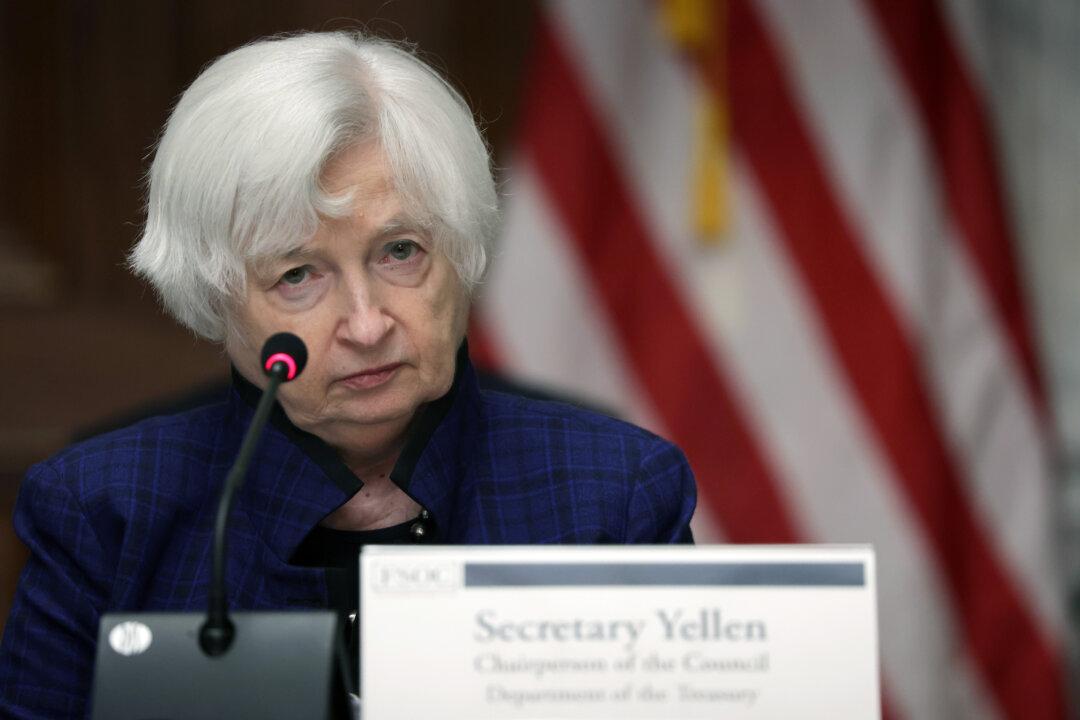Treasury Secretary Janet Yellen has issued a renewed—and alarmist—warning to House Speaker Kevin McCarthy (R-Calif.) and other congressional leaders, reiterating her earlier position that the country could run out of money to pay its debt obligations as early as June 1, but this time around expressing more confidence in her dire prediction.
Yellen has repeatedly warned that the debt ceiling deadlock grinding on in Washington is pushing the country closer to the so-called X-date, when the Treasury Department’s bag of accounting tricks (known as “extraordinary measures”) runs out and the government faces the prospect of a debt default.





